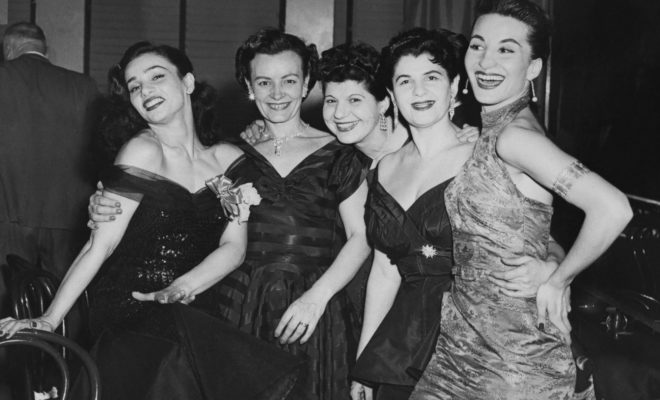
Arts & Culture
The Jewish Film Festival
A Collaboration of Passion & Commitment
By Gus Mollasis
If film truly is the most collaborative and challenging of all the art forms, then putting on a successful film festival that leaves a lasting impression is every bit as collaborative and challenging.
Both depend on good stories, a great producing and director team working together diligently to create something special – something that engages, entertains and educates the movie-goers who love the power of film.
And that’s just what The Jewish Federation of Sarasota-Manatee has been doing for the last nine years – producing a festival that focuses on the eclectic nature of the Jewish experience portrayed on film.
As they get ready to produce their tenth annual Jewish Film Festival starting with the opening night film on March 6, Heading Home: The Tale of Team Israel, through the closing night film ten days later on March 17, The Mamboniks, one thing is certain. This Festival will be a diverse slice of the Jewish life that has something for everyone.
Festival Co-chair Fran Braverman emphasizes why “there is great need for these festivals, not just for Jewish people, but for all people.”
“I love good, interesting and entertaining films that teach me something,” Braverman said. “We certainly provide that each and every year at the festival. We have films on the Holocaust, and that’s important to educate the next generation about those atrocities so that they will not only never forget them, but also prevent them from happening again, but sadly, they are happening around the world even today.”
Festival Co-chair Cheryl Shapiro echoes Braverman’s words. “It’s important that we continue to share our stories with the world. Film has a way of informing the public in a way that no other art form can. It can be very powerful in building bridges.”
Jeremy Lisitza, Director of Innovation and Volunteer Engagement at The Jewish Federation, could not agree more.
“Film builds bridges because it educates. Every single one of these films has a message. A very poignant message. You go away knowing or experiencing something you didn’t know before.”
Braverman, Shapiro and Lisitza are very excited about this year’s Festival.
“This will be our biggest, best and most important festival yet. This Festival, we’re excited to provide a record breaking 18 films that round out a diverse line-up. We have documentaries like The Optimists, which is about a small community living in a kibbutz in the desert in Israel, representing an alternative path to current Israeli society; a unique love story named Keep the Change; and the closing night film, The Mamboniks, that deals with the little-known story of the Jewish love affair with Latin music. There is something for everyone,” Lisitza says.
Something for everyone indeed.
“We really focused this year on having a wide variety of documentaries, narratives, films about the Holocaust and regular Jewish experience as well as comedies,” Lisitza continued.

The opening night film, Heading Home: The Tale of Team Israel, is the David-and-Goliath story of Israel’s national baseball team, as it competes for the first time in the world baseball classic. Back to Berlin is touted as the first biker flick-meets-Holocaust feature documentary. In this film, eleven bikers take the Maccabiah torch from Israel to the site of the infamous 1936 Berlin Olympics for the first Jewish Olympic Games on German soil. Along the way they trace the heroic journey of the original 1930’s Maccabiah riders and discover how they survived the Holocaust.
A film that both co-chairs, Fran Braverman and Cheryl Shapiro, look forward to is My Dear Children. The film is the story of Jewish faith, family, and a tragedy that reverberated for generations. The pogroms after the Russian Revolution of 1917 killed tens of thousands of Jews and began the near obliteration of Jewish life. The film is the stunning account of Feiga Shamis, a Jewish mother of 12, who wrote about those years in an unbelievable, rare first-hand account.
“As Jews, we have been aware of the pogroms and the evil that they did. It’s an important part of our history,” Braverman states. “The evil acts of Hitler and the Nazis were not new to us and our Jewish experience,” Shapiro added, citing an old saying, “Those who cannot remember history are doomed to repeat it.”
Braverman also sights the need for education and is shocked at recent studies that claim that significant numbers of millennials have never heard of the Holocaust and Auschwitz. “I wonder what they are teaching them in school. This is unacceptable,” says Braverman.
And that’s just one more reason why movie festivals like the Jewish Film Festival are even more important today. Still, producing a festival, just like a film, has many moving parts and can be quite a daunting task.
Lisitza explains the process. “Our staff starts the process the previous summer watching 60 to 70 trailers of film. A large committee reviews and votes on original trailers, narrowing



You must be logged in to post a comment Login